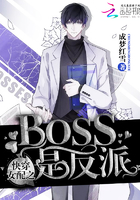It was much too fine a night to think of going to bed at once, and so, although the witching hour of nine P.M. had struck, Edward and I were still leaning out of the open window in our nightshirts, watching the play of the cedar-branch shadows on the moonlit lawn, and planning schemes of fresh devilry for the sunshiny morrow. From below, strains of the jocund piano declared that the Olympians were enjoying themselves in their listless, impotent way; for the new curate had been bidden to dinner that night, and was at the moment unclerically proclaiming to all the world that he feared no foe. His discordant vociferations doubtless started a train of thought in Edward's mind, for the youth presently remarked, a propos of nothing that had been said before, "I believe the new curate's rather gone on Aunt Maria."
I scouted the notion. "Why, she's quite old," I said. (She must have seen some five-and-twenty summers.)
"Of course she is," replied Edward, scornfully. "It's not her, it's her money he's after, you bet!"
"Didn't know she had any money," I observed timidly.
"Sure to have," said my brother, with confidence. "Heaps and heaps."
Silence ensued, both our minds being busy with the new situation thus presented,--mine, in wonderment at this flaw that so often declared itself in enviable natures of fullest endowment,--in a grown-up man and a good cricketer, for instance, even as this curate; Edward's (apparently), in the consideration of how such a state of things, supposing it existed, could be best turned to his own advantage.
"Bobby Ferris told me," began Edward in due course, "that there was a fellow spooning his sister once--"
"What's spooning?" I asked meekly.
"Oh, _I_ dunno," said Edward, indifferently. It's--it's--it's just a thing they do, you know. And he used to carry notes and messages and things between 'em, and he got a shilling almost every time."
"What, from each of 'em?" I innocently inquired.
Edward looked at me with scornful pity. "Girls never have any money," he briefly explained. "But she did his exercises and got him out of rows, and told stories for him when he needed it--and much better ones than he could have made up for himself. Girls are useful in some ways. So he was living in clover, when unfortunately they went and quarrelled about something."
"Don't see what that's got to do with it," I said.
"Nor don't I," rejoined Edward. "But anyhow the notes and things stopped, and so did the shillings. Bobby was fairly cornered, for he had bought two ferrets on tick, and promised to pay a shilling a week, thinking the shillings were going on for ever, the silly young ass. So when the week was up, and he was being dunned for the shilling, he went off to the fellow and said, `Your broken-hearted Bella implores you to meet her at sundown,-- by the hollow oak, as of old, be it only for a moment. Do not fail!' He got all that out of some rotten book, of course.
The fellow looked puzzled and said,--
"`What hollow oak? I don't know any hollow oak.'
"`Perhaps it was the Royal Oak?' said Bobby promptly, 'cos he saw he had made a slip, through trusting too much to the rotten book; but this didn't seem to make the fellow any happier."
"Should think not," I said, "the Royal Oak's an awful low sort of pub."
"I know," said Edward. "Well, at last the fellow said, `I think I know what she means: the hollow tree in your father's paddock.
It happens to be an elm, but she wouldn't know the difference.
All right: say I'll be there.' Bobby hung about a bit, for he hadn't got his money. `She was crying awfully,' he said. Then he got his shilling."
"And wasn't the fellow riled," I inquired, "when he got to the place and found nothing?"
"He found Bobby," said Edward, indignantly. "Young Ferris was a gentleman, every inch of him. He brought the fellow another message from Bella: `I dare not leave the house. My cruel parents immure me closely If you only knew what I suffer. Your broken-hearted Bella.' Out of the same rotten book. This made the fellow a little suspicious,'cos it was the old Ferrises who had been keen about the thing all through: the fellow, you see, had tin."
"But what's that got to--" I began again.
"Oh, _I_ dunno," said Edward, impatiently. `I'm telling you just what Bobby told me. He got suspicious, anyhow, but he couldn't exactly call Bella's brother a liar, so Bobby escaped for the time. But when he was in a hole next week, over a stiff French exercise, and tried the same sort of game on his sister, she was too sharp for him, and he got caught out. Somehow women seem more mistrustful than men. They're so beastly suspicious by nature, you know."
"_I_ know," said I. "But did the two--the fellow and the sister--make it up afterwards?"
"I don't remember about that," replied Edward, indifferently;
"but Bobby got packed off to school a whole year earlier than his people meant to send him,--which was just what he wanted. So you see it all came right in the end!"
I was trying to puzzle out the moral of this story--it was evidently meant to contain one somewhere--when a flood of golden lamplight mingled with the moon rays on the lawn, and Aunt Maria and the new curate strolled out on the grass below us, and took the direction of a garden seat that was backed by a dense laurel shrubbery reaching round in a half-circle to the house. Edward mediated moodily. "If we only knew what they were talking about," said he, "you'd soon see whether I was right or not.
Look here! Let's send the kid down by the porch to reconnoitre!"
"Harold's asleep," I said; "it seems rather a shame--"
"Oh, rot!" said my brother; "he's the youngest, and he's got to do as he's told!"
So the luckless Harold was hauled out of bed and given his sailing-orders. He was naturally rather vexed at being stood up suddenly on the cold floor, and the job had no particular interest for him; but he was both staunch and well disciplined.















